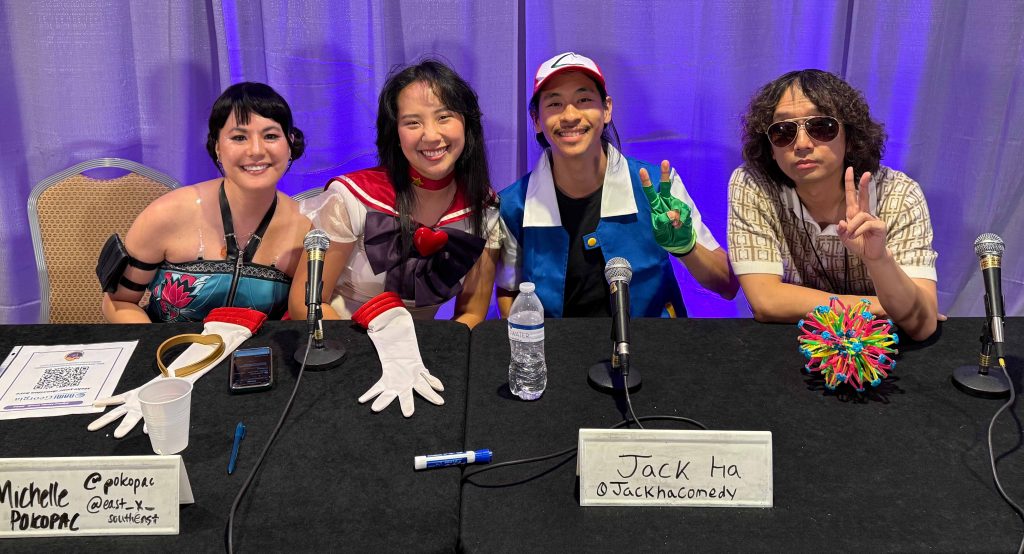
You can tell when someone is being authentic versus faking it or using gimmicks just to get noticed. On Sunday at 2:30PM, the Digital Media Track hosted “Using Social Media for Real-Life Success” at the Hilton Galleria 6. Moderator Michelle Pokopac, cofounder of East by Southeast, led a candid discussion with filmmaker Naomi Smith, comedian Jack Ha, and musician/actor Alan Z. The panelists shared how social media has shaped their careers, how they navigate its challenges, and how they balance online presence with authenticity.
For Alan Z, social media was less an option than a necessity. Early in his career, record labels told him he was not marketable because of his Asian heritage. “I didn’t feel like I had a choice but to build my own platform,” he said. Touring and music success came only after he built a strong digital footprint, which continues to open doors for acting and shows.
Smith described how Instagram and TikTok serve as both her online portfolio and professional network. “The more I posted [my work, commercials, food prep], the more I was noticed,” she explained, adding that DMs (direct messages) to potential collaborators often lead to real opportunities. She also separates professional and personal accounts to control how she’s perceived.
For Ha, social media was a lifeline both personally and professionally. Growing up isolated, he found connection and community online. “I eventually realized I had to branch out and connect in ways I never thought I could,” he said, noting that Discord has helped him build connections and land comedy gigs.
As for how to succeed on social media, the group agreed that authenticity is more valuable than chasing trends. Smith emphasized focusing energy on one platform rather than spreading thin across many, while Ha encouraged direct outreach to connect with people and get opportunities. “The worst that can happen is they say no. Or don’t read it. Just go for it. I’ve gotten so many shows by just DMing people.”
The conversation turned to the impact of artificial intelligence. Smith’s field in food styling has already seen jobs replaced by AI-generated advertising. “I can tell it doesn’t look right,” she said, “but to the average eye, do people care?”
Pokopac and Alan Z agreed that while AI can be a tool, it can’t replace authenticity or artistry. Artists need to remain politically and professionally engaged in shaping its use.
When asked by the audience how to convert online attention into real-world success, panelists advised setting clear short-term and long-term goals. Smith said, “Short is more attention” to different aspects of your business, “then strategize how to keep pushing it.” Alan Z recommended partnering with BookTok influencers or niche communities aligned with one’s audience. Pokopac urged artists to remember that marketing takes time.
A final question from the audience asked where the panelists are between “have to use social media” to succeed versus want to use it because it helps them. Alan Z uses “social media to go where I want to go. Places to take me outside of my phone.” Smith summed it up with, “Talk with others about what worked for them. You won’t know what works for you until you try. If it doesn’t work, try something else and keep trying.”
